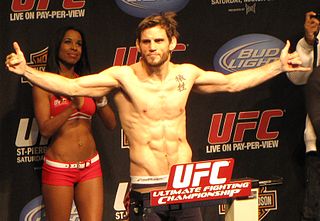A Quote by Chuck Palahniuk
It's interesting because when David Fincher was making "Fight Club," he said, "It's a romance." And it really is. Almost everything I ever write is just a romance. And that needed to be sort of pointed up at the end of "Fight Club." The film has a very different ending than the book does.
Related Quotes
To me, Fight Club was a comedy. When [David] Fincher sent me the book and I read it, the first thing I asked him was, "This is a comedy, right?" he said, "Yeah, that's the whole point," and I said, "Okay, I'm in." I certainly wasn't imagining myself as a dramatic actor when I was running around in my underwear in that film.
Welcome to Fight Club. The first rule of Fight Club is: you do not talk about Fight Club. The second rule of Fight Club is: you DO NOT talk about Fight Club! Third rule of Fight Club: if someone yells “stop!”, goes limp, or taps out, the fight is over. Fourth rule: only two guys to a fight. Fifth rule: one fight at a time, fellas. Sixth rule: the fights are bare knuckle. No shirt, no shoes, no weapons. Seventh rule: fights will go on as long as they have to. And the eighth and final rule: if this is your first time at Fight Club, you have to fight.
I tagged a first-timer one night at fight club. That Saturday night, a young guy with an angel’s face came to his first fight club, and I tagged him for a fight. That’s the rule. If it’s your first night in fight club, you have to fight. I knew that so I tagged him because the insomnia was on again, and I was in a mood to destroy something beautiful.
With action in Hollywood, a choreographer will be hired to design an amazing fight, with all these cool little narrative bits, such as a fighter having to perform a certain move because he's been injured and can only move that way, but it can all get lost in translation because the director then does what he wants with it and then passes it on to the editor, who does his interpretation of the fight. It becomes almost like Chinese whispers, so sometimes the end fight you see on film is so different to how it was conceived and looked on the day.
There is a social contract in "Fight Club" and in "Choke" where the protagonist has deceived a whole bunch of people. In "Choke" it's all of these people who think that they've saved his life, and really care about him because they've embraced him and they've been his saviors. In "Fight Club" it's all of these people who are dying of various diseases, and they thought that Edward Norton was also dying so they allowed him really strong pent-up emotions.
A movie is made for an audience and a film is made for both the audience and the film-makers. I think that The Game is a movie and I think Fight Club's a film. I think that Fight Club is more than the sum of its parts, whereas Panic Room is the sum of its parts. I didn't look at Panic Room and think, "Wow, this is gonna set the world on fire". These are footnote movies, guilty pleasure movies. Thrillers. Woman-trapped-in-a-house movies. They're not particularly important.
































